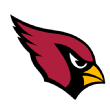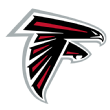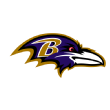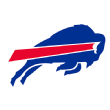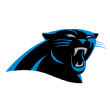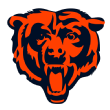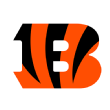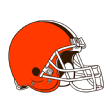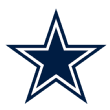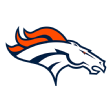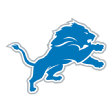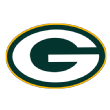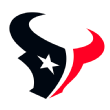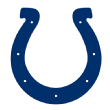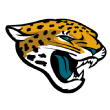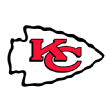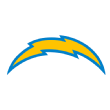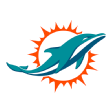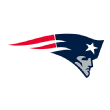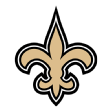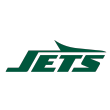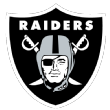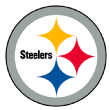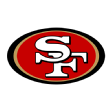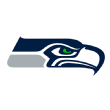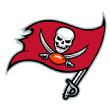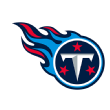NFL draft do-overs: Let's re-pick ... and fix mistakes for all 32 teams

The NFL draft annually brings back memories, and many of those memories aren't exactly pleasant. With every draft bust comes the question, "What if we took [fill-in-the-blank Pro Bowler who's on another team] instead?" On that note, what if you could go back and get a do-over on those draft picks that your team whiffed on?
That's the premise of this exercise, as we asked our 32 NFL Nation reporters to go back over the past five drafts (2014-18) and correct their team's biggest draft mistake during that time. We gave them the keys to the DeLorean and waived all speed laws.
The ground rules:
- The re-drafted player has to be at a position of reasonable need in that particular draft (no Todd Gurley allowed for the Pittsburgh Steelers in 2015).
- The re-drafted player has to be available at the pick in question (no using the 30th pick in 2017 to draft Patrick Mahomes).
- You cannot trade the pick you're looking to re-draft, but you can choose not to trade a pick the team traded (see the Buffalo Bills' entry).
With those rules in place, it's time to rewrite history in the way each reporter sees fit. Click on the links below to go to each team:
Arizona Cardinals
First round of the 2014 draft (No. 27 overall)
Actual pick: Deone Bucannon, LB, Washington State
Do-over pick: DeMarcus Lawrence, DE, Boise State
Picked just seven slots after Bucannon, Lawrence would've given the Cardinals a dominant pass-rusher long before they traded for Chandler Jones in 2016. At the time, they could've paired Lawrence with Calais Campbell to give Arizona a forceful edge rush. Even though quarterback Derek Carr was still on the board, the Cardinals were in the midst of Carson Palmer's run. Drafting a quarterback would've made sense long term, but Lawrence would've given the Cardinals stability on one edge right away. And imagine pairing him with Jones if history stayed on track. -- Josh Weinfuss
Atlanta Falcons
First round of 2015 draft (No. 8 overall)
Actual pick: Vic Beasley Jr., DE, Clemson
Do-over pick: Todd Gurley, RB, Georgia
Sure, pass-rush help was the No. 1 priority for the Falcons, but it's hard to pass on an offensive playmaker who is right in your own backyard. Gurley could have made a dynamic Atlanta offense even more dangerous despite coming off a serious knee injury in college. And it wouldn't have mattered that the Falcons already had an eventual Pro Bowl back in Devonta Freeman; they ended up drafting the now-departed Tevin Coleman in this draft. -- Vaughn McClure
Baltimore Ravens
First round of 2015 draft (No. 26 overall)
Actual pick: Breshad Perriman, WR, UCF
Do-over pick: Stefon Diggs, WR, Maryland
The Ravens were looking for a playmaking downfield target and chose to go with a prospect with questionable hands over someone who played a short drive from their stadium. Baltimore wasn't the only team to pass on Diggs, who lasted until the fifth round because of durability issues. But this represents another cringe-worthy misstep at wide receiver for the Ravens, as Diggs has totaled 3,493 yards (or 2,577 more than Perriman). -- Jamison Hensley
Buffalo Bills
First round of the 2017 draft (No. 10 overall)
Actual pick: Tre'Davious White, CB, LSU (after trading down from No. 10 to No. 27)
Do-over pick: Patrick Mahomes, QB, Texas Tech (with the No. 10 pick)
The Bills maneuvered extensively to acquire Josh Allen in the 2018 draft and hope he's their franchise quarterback, but passing on Mahomes was a decision that could ultimately limit Buffalo's ceiling. Then-rookie coach Sean McDermott and owner Terry Pegula went on the road before the 2017 draft to visit with quarterbacks as they explored long-term options to replace Tyrod Taylor, but with Mahomes and Deshaun Watson on the board at No. 10, the Bills punted on the pick in order to take White at No. 27 and add a 2018 first-round selection. General manager Doug Whaley was fired the day after the draft, adding to the confusion about who made the call. -- Mike Rodak
Carolina Panthers
First round of the 2016 draft (No. 30 overall)
Actual pick: Vernon Butler, DT, Louisiana Tech
Do-over pick: Germain Ifedi, OT, Texas A&M
The Panthers took a defensive tackle in each of the first two rounds of the 2013 draft, so this was then-GM Dave Gettleman's insurance in case he lost one in free agency in the ensuing seasons. That happened when Star Lotulelei went to Buffalo in 2018. But the offensive line was a mess a year after Carolina went to the Super Bowl, particularly after left tackle Michael Oher was lost for the season with a concussion. Ifedi, who went No. 31 to Seattle, has started 44 games at guard and tackle. He would have helped solve problems on the line that continued in 2017 and '18. Butler has been a disappointment, with zero starts and two sacks in three seasons. -- David Newton
Chicago Bears
First round of the 2015 draft (No. 7 overall)
Actual pick: Kevin White, WR, West Virginia
Do-over pick: Todd Gurley, RB, Georgia
The Bears were searching for the heir apparent to Matt Forte in the spring of 2015, but instead of taking Gurley, Chicago chose White, who turned out to be a bust. The Bears eventually addressed running back in the fourth round that year by drafting Michigan State's Jeremy Langford. But Langford lasted two seasons in Chicago, and Gurley is one of the league's best skill-position players. -- Jeff Dickerson
Cincinnati Bengals
First round of the 2015 draft (No. 21 overall)
Actual pick: Cedric Ogbuehi, OT, Texas A&M
Do-over pick: Benardrick McKinney, LB, Mississippi State
The Bengals tried to replace left tackleAndrew Whitworth several years before they needed to; in hindsight, they should've been trying to reshape their linebacking corps. The Ogbuehi experiment was a disaster and the play of middle linebacker Rey Maualuga dropped off sharply the following season, causing the Bengals to spend several years signing a series of middle linebackers to one-year deals. Four years later, the Bengals are still looking to fill holes at both tackle and linebacker. -- Katherine Terrell
Cleveland Browns
First round of the 2014 draft (No. 22 overall)
Actual pick: Johnny Manziel, QB, Texas A&M
Do-over pick: Anyone else
Literally, any other player drafted after Manziel (pass-rusher Dee Ford went 23rd) would have been better. The damage from this pick cannot be fully calculated, because missing on a quarterback taken high sets a team back the number of years it commits to him, plus the same number of years to find the next guy. In the Browns' case, this choice set them back four seasons -- or until they found Baker Mayfield. The signals and signs Manziel was not truly committed were there, but the Browns went ahead with a choice they should have avoided. -- Pat McManamon
Dallas Cowboys
First round of 2017 draft (No. 28 overall)
Actual pick: Taco Charlton, DE, Michigan
Do-over pick: Ryan Ramczyk, OT, Wisconsin
Charlton is the only Dallas first-round pick since 2013 not to make a Pro Bowl, so there is some disappointment thus far. While many believe T.J. Watt should have been the Cowboys' pick due to his success in his first two seasons in Pittsburgh, the organization (front office and coaches) did not feel he was a perfect fit for their 4-3 scheme. Ramczyk is the pick because he has started every game and would have allowed the Cowboys to keep La'el Collins at guard instead of moving to right tackle. The Cowboys like to say they want to keep their strengths strong, and Ramczyk would have done that for their offensive line. -- Todd Archer
Denver Broncos
First round of the 2016 draft (No. 26 overall)
Actual pick: Paxton Lynch, QB, Memphis
Do-over pick: Hunter Henry, TE, Arkansas
The Broncos traded up in the first round -- from No. 31 and threw in a third-round pick (No. 94) -- because they wanted their quarterback of the future. But Lynch failed to win the starting job in back-to-back training camps and then didn't win the backup job in his third training camp, in 2018. He was waived last summer after four starts, four touchdowns and four interceptions.The Broncos have taken a tight end in three of the past four drafts (Jeff Heuerman, Jake Butt and Troy Fumagalli) because it has been, and still is, a need position. While Henry has dealt with injuries -- as have the three tight ends Denver has drafted -- he has produced when healthy and would have presented a tempting option. -- Jeff Legwold
Detroit Lions
First round of the 2014 draft (No. 10 overall)
Actual pick: Eric Ebron, TE, North Carolina
Do-over pick: Aaron Donald, DT, Pittsburgh
This has been one of the most spirited (and even heated) discussions among Lions fans for the past five years. The Lions' passing on Donald, Taylor Lewan, Odell Beckham Jr. and others to take Ebron hurt the franchise because of the impact any of those players would have had. Donald, of course, was the biggest potential impact player of the bunch considering how dominant he could have made Detroit's defensive line in 2014 and how he could have slid in to replace Ndamukong Suh after that season. Drafting Donald could have created far-reaching implications for the Lions that might have saved jobs. Ebron flourished last season in Indianapolis, but it never totally worked for him with the Lions. Part of that had to do with who he was compared to. -- Michael Rothstein
Green Bay Packers
First round of the 2017 draft (No. 29 overall)
Actual pick: Kevin King, CB, Washington (after trading down to No. 33)
Do-over pick: T.J. Watt, OLB, Wisconsin
After the Packers traded down in Ted Thompson's final draft as general manager, the Steelers picked Watt at No. 30 and the Packers took King with the first pick in the second round (the Packers also got the No. 104 pick in trade). It seemed like a risk at the time given the Packers' need for a pass-rusher and King's history of shoulder problems. Sure enough, Watt had seven sacks as a rookie and 13 last season, while King has finished each of his first two seasons on injured reserve. The Packers then had to use their top pick in 2018 on another corner, Jaire Alexander, and spent big money on their pass rush in free agency this year with Za'Darius Smith and Preston Smith. -- Rob Demovsky
Houston Texans
Second round of 2014 draft (No. 33 overall)
Actual pick: Xavier Su'a-Filo, G, UCLA
Do-over pick: Derek Carr, QB, Fresno State
The Texans are obviously ecstatic to have Deshaun Watson, but they could have found their franchise quarterback three years earlier in the second round. Instead, Houston went with Su'a-Filo, whom the Texans did not bring back after his rookie contract expired following the 2017 season. In those three seasons -- Bill O'Brien's first in Houston -- the Texans had eight quarterbacks start a game. The Texans, of course, drafted Derek's brother, David Carr, with their first-ever pick in 2002. After Derek was drafted by the Raiders, David told reporters he didn't "know if [the Texans] wanted that attention or distraction" that could have come had they taken his brother. -- Sarah Barshop
Indianapolis Colts
First round of 2015 draft (No. 29 overall)
Actual pick: Phillip Dorsett, WR, Miami
Do-over pick: Landon Collins, S, Alabama
Taking Dorsett was one of many things that went wrong in the 2015 offseason for Indianapolis. Safety was a glaring need for the Colts, but they were so caught up with trying to beat New England, which beat them in the AFC Championship Game the previous season, that they thought the speedy Dorsett would help them get past the Patriots. Dorsett never lived up to his potential and was traded to, of all teams, the Patriots in 2017. Collins was selected to the Pro Bowl in each of the past three seasons. -- Mike Wells
Jacksonville Jaguars
First round of the 2017 draft (No. 4 overall)
Actual pick: Leonard Fournette, RB, LSU
Do-over pick: Patrick Mahomes, QB, Texas Tech
Blake Bortles was coming off a terrible season and new executive vice president of football ops Tom Coughlin could have hit the reset button on the position with the big-armed Mahomes. The Jaguars might not have made an appearance in the AFC title game that season (Fournette played a major role in that), but taking Mahomes (or Deshaun Watson) would have set up the franchise for long-term success. Plus, the Jaguars wouldn't have signed Bortles to a four-year extension that February, a move that cost the team $16.5 million in dead money when it released him last month. Jacksonville wouldn't have had to sign Nick Foles to a contract that averages $22.75 million a year, either. That money could have been used in free agency or to sign CB Jalen Ramsey and DE Yannick Ngakoue to extensions. -- Mike DiRocco
Kansas City Chiefs
Second round of the 2017 draft (No. 59 overall)
Actual pick: Tanoh Kpassagnon, DE, Villanova
Do-over pick: JuJu Smith-Schuster, WR, USC
Kpassagnon contributed little in two seasons and was often a healthy scratch late last season. Had the Chiefs drafted Smith-Schuster, who went three picks later to the Steelers, they wouldn't have needed to overpay for Sammy Watkins in free agency the next year. Perhaps Kpassagnon's career is revived by a switch from linebacker to his college position of defensive end this season, but he has looked like a lost pick so far. -- Adam Teicher
Los Angeles Chargers
First round of the 2014 draft (No. 25 overall)
Actual pick: Jason Verrett, CB, TCU
Do-over pick: Bradley Roby, CB, Ohio State
Verrett's talent is undeniable, as he made a Pro Bowl in his only healthy season in 2015. However, injury concerns were an issue for Verrett coming out of college because of his smaller frame. Those concerns proved accurate, with Verrett missing 55 of a possible 80 games during his tenure with the team due to an assortment of injuries. Roby, selected six picks later by the Denver Broncos at No. 31, missed one game in five seasons, totaling seven interceptions and 60 pass breakups during his time in Denver. -- Eric D. Williams
Los Angeles Rams
First round of the 2014 NFL draft (No. 2 overall)
Actual pick: Greg Robinson, OT, Auburn
Do-over pick: Odell Beckham Jr., WR, LSU
The Rams needed to draft an offensive tackle in 2014, but Robinson was a complete bust. After three disappointing seasons, the Rams signed veteran Andrew Whitworth, then traded Robinson to the Detroit Lions for a sixth-round pick. And to think what might have been. Also on the Rams' list of needs in 2014? A wide receiver. With the second overall pick, they could have selected Beckham, a head-turning playmaker who would turn into a star on and off the field with the Rams' eventual move to Los Angeles and the eventual hiring of offense-minded coach Sean McVay. -- Lindsey Thiry
Miami Dolphins
First round of 2017 draft (No. 22 overall)
Actual pick: Charles Harris, DE, Missouri
Do-over pick: T.J. Watt, OLB/DE, Wisconsin
The Dolphins were hoping to find a pass-rusher to complement and eventually replace veteran Cameron Wake, but they chose the wrong one in Harris. With three sacks in two seasons, he hasn't found ways to win one-on-one matchups and make a true NFL impact. Miami hasn't given up on Harris yet, but the team would jump at the chance to correct its error by nabbing the slightly undersized but uber-effective Watt (20 sacks in two seasons). -- Cameron Wolfe
Minnesota Vikings
First round of the 2016 draft (No. 23 overall)
Actual pick: Laquon Treadwell, WR, Ole Miss
Do-over pick: Michael Thomas, WR, Ohio State
This is a no-brainer. The Vikings have struggled to find a No. 3 receiver, as the Treadwell experiment has run its course the past three seasons. Thomas, who was taken by the Saints 24 picks later, had a career-high 12.4 yards per catch as a rookie, compiled the most receptions by a player in his first three seasons (321) in NFL history and led the league in receptions last season (125). While his numbers might not have been as gaudy in Minnesota with teammates Adam Thielen and Stefon Diggs, having Thomas in the mix would give the Vikings the deadliest receiving corps in the league. -- Courtney Cronin
New England Patriots
Second round of the 2017 draft (No. 64 overall)
Actual pick: Derek Rivers, DE, Youngstown State (after trading down to No. 83)
Do-over pick: Alvin Kamara, RB, Tennessee
The Patriots' wheeling and dealing with draft picks has often produced solid results, but this was a case where it backfired on them. Entering the draft, they traded their second-round pick (No. 64) in exchange for defensive end Kony Ealy and a third-round pick (72). An eight-spot move down the draft board for Ealy seemed like a low-risk move at the time, but Ealy never made it out of training camp, as it was clear early that he wasn't a good scheme/program fit. Meanwhile, that eight-slot drop cost the Patriots a chance to select Kamara, a player coach Bill Belichick personally visited with before the draft. And then when the Patriots were ready to select C/G Dan Feeney at No. 72, the Chargers took him one slot before, which led to another trade down to regroup. Rivers might wind up being a solid player, but after missing his rookie season with a torn ACL, he had a quiet second season and was lower on the depth chart. So 2019 is a big year for him. -- Mike Reiss
New Orleans Saints
Second round of the 2014 draft (No. 58 overall)
Actual pick: Stanley Jean-Baptiste, CB, Nebraska
Do-over pick: Jimmy Garoppolo, QB, Eastern Illinois
Sure, just about every team in the NFL would love to go back and take Jimmy G. But this should have been a strong consideration for the Saints, since Drew Brees was 35 at the time and Sean Payton knew Garoppolo well from their shared alma mater. Even if Garoppolo didn't wind up becoming Brees' heir apparent, they could have traded him for a premium draft choice. Instead, they got nothing out of Jean-Baptiste, who was cut after one season. -- Mike Triplett
New York Giants
First round of 2015 draft (No. 9 overall)
Actual pick: Ereck Flowers, OT, Miami
Do-over pick: Todd Gurley, RB, Georgia
Flowers started 48 games but didn't play well and was eventually cut. The Giants could've had Gurley and Odell Beckham Jr. growing up together one year apart. It would have left them in position to draft a quarterback several years later instead of Saquon Barkley. And it would've all made sense. The Giants' running backs at the time of the Flowers selection: Rashad Jennings, Andre Williams, Shane Vereen and Orleans Darkwa. -- Jordan Raanan
New York Jets
First round of the 2014 draft (No. 18 overall)
Actual pick: Calvin Pryor, S, Louisville
Do-over pick: Derek Carr, QB, Fresno State
The Jets gave up on Pryor after three years and now he's out of the league. One segment of the organization lobbied for Carr, but the Jets mistakenly stuck with Geno Smith -- a decision that proved disastrous. They did a poor job of scouting Pryor, who was undersized and athletically limited. -- Rich Cimini
Oakland Raiders
Second round of the 2016 draft (No. 44 overall)
Actual pick: Jihad Ward, DE, Illinois
Do-over pick: Yannick Ngakoue, DE, Maryland
The Raiders had three consecutive whiffs on second-round picks from 2015 through 2017, but let's go with the selection of Ward based on his lack of production in Oakland and, well, Oakland's current quandary at edge rusher and the dearth of production when it comes to sacking quarterbacks. Yes, we realize trading away Khalil Mack did not help matters, but when you consider Ward had all of one sack in 21 games for the Raiders and Ngakoue, who went 25 picks after Ward, has 29.5 sacks, 10 forced fumbles, two fumble recoveries, a touchdown and a Pro Bowl nod in 48 games for the Jaguars, well, there it is. More insult to injury -- Ward seemed to find his footing with three sacks for the Colts last season. -- Paul Gutierrez
Philadelphia Eagles
First round of the 2014 draft (No. 26 overall)
Actual pick: Marcus Smith, DE, Lousiville
Do-over pick: DeMarcus Lawrence, DE/OLB, Boise State
With their list of primary targets already off the board, the Eagles traded back and selected Smith, who was coming off a 16-sack season at Louisville. The production didn't transfer to the pros, as Smith notched just four sacks in three seasons with the Eagles before he was cut. Lawrence was taken eight picks later by Dallas and has 34 career sacks and two Pro Bowl appearances under his belt. -- Tim McManus
Pittsburgh Steelers
First round of 2016 draft (No. 25 overall)
Actual pick: Artie Burns, CB, Miami
Do-over pick: Xavien Howard, CB, Baylor
The Steelers scoured the earth for cornerbacks in 2016. They really liked William Jackson, who went No. 24 overall. So the Steelers zoned in on Burns, who showed flashes in his first two seasons but got benched in Year 3. Howard, a Pro Bowler in Miami, would have become a staple at outside corner opposite Joe Haden to solidify the Steelers' pass defense. -- Jeremy Fowler
San Francisco 49ers
First round of the 2016 NFL draft (No. 28 overall)
Actual pick: Joshua Garnett, G, Stanford
Do-over pick: Michael Thomas, WR, Ohio State
A top receiver has been a need for the 49ers since Terrell Owens departed in 2003, but it was heightened further in 2016, when Anquan Boldin left. Plenty of fans and outside observers thought the Niners should use their second-round pick, which was No. 37 overall, on Thomas. Instead, San Francisco traded that pick, a fourth-round choice and a sixth-round choice to Kansas City for No. 28 and a seventh-round choice. Garnett showed promise as a rookie but has been plagued by injury while Thomas has been to two Pro Bowls and averaged 107 catches, 1,262 yards and eight touchdowns per season. The 49ers still find themselves seeking a top wideout and could have had Thomas without trading up. -- Nick Wagoner
Seattle Seahawks
Second round of the 2017 draft (No. 35 overall)
Actual pick: Malik McDowell, DL, Michigan State
Do-over pick: JuJu Smith-Schuster, WR, USC
McDowell was considered a boom-or-bust prospect because of well-documented questions about his effort, but no one could have predicted his Seattle career would end before it ever began when he suffered a head injury in an all-terrain vehicle accident that has prevented him from playing a down in the NFL. It got worse for the Seahawks when they replaced McDowell by trading another second-round pick for what turned out to be one underwhelming season from Sheldon Richardson. Smith-Schuster wouldn't have matched the production he's given Pittsburgh while playing in Seattle's run-heavy offense, but he would have given the Seahawks a No. 1 receiver with the type of big body they were seeking when they made another do-over-worthy selection by taking Amara Darboh in the third round (No. 106). -- Brady Henderson
Tampa Bay Buccaneers
Second round of the 2016 NFL draft (No. 59 overall)
Actual pick: Roberto Aguayo, K, Florida State
Do-over pick: Yannick Ngakoue, DE, Maryland
The Bucs could have selected anyone in this spot and it would have been better than Aguayo, who made it through just one season. While tempting to go with cornerback James Bradberry (who one could argue would have been a better pick at 11th overall instead of Vernon Hargreaves), the Bucs should have doubled up on pass-rushers by selecting Ngakoue, who has accumulated 29.5 sacks over the past three seasons. Noah Spence, the Bucs' other second-round pick, had some off-the-field concerns, so Ngakoue would have functioned as a safety net. Also, the aging Robert Ayers wasn't a long-term solution and you need a healthy rotation of pass-rushers, anyway. To win in the NFC South -- arguably the best quarterback division in the league -- you simply can't allow the ball to leave the quarterback's hands. -- Jenna Laine
Tennessee Titans
Second round of 2016 draft (No. 33 overall)
Actual pick: Kevin Dodd, OLB, Clemson
Do-over pick: Chris Jones, DT, Mississippi State
The Titans need another player who can get after the quarterback. They thought selecting Dodd would fill the void, but that ended up being a colossal mistake, as he isn't even in the NFL anymore. Jones was selected four picks later by the Chiefs and posted 15.5 sacks last season. -- Turron Davenport
Washington Redskins
First round of the 2016 draft (21st overall)
Actual pick: Josh Doctson, WR, TCU
Do-over pick: Chris Jones, DE, Mississippi State
The Redskins entered this draft needing help along the defensive line but didn't take any until the fifth round (a gem in Matt Ioannidis). That led to a trickle-down effect in the first round of the next two drafts, when they selected Jonathan Allen and Daron Payne, respectively. They have a terrific young line corps, but had they selected Jones they could have added other parts to the defense instead the past two years-- maybe LB Tremaine Edmunds or S Derwin James last spring. Jones has become a force along the line -- he recorded 15.5 sacks last season -- and could have helped the Redskins in their base and substitution packages. Meanwhile, Doctson has caught a combined 81 passes in three seasons. -- John Keim
Related Video
Related Topics
- SPORTS
- ESPN
- CINCINNATI BENGALS
- NEW ORLEANS-SAINTS
- ATLANTA FALCONS
- HOUSTON TEXANS
- BALTIMORE RAVENS
- NFL DRAFT
- PHILADELPHIA EAGLES
- INDIANAPOLIS COLTS
- DO OVER
- WASHINGTON REDSKINS
- TENNESSEE TITANS
- JACKSONVILLE JAGUARS
- CAROLINA PANTHERS
- NEW YORK-JETS
- CHICAGO BEARS
- NEW ENGLAND-PATRIOTS
- SEATTLE SEAHAWKS
- DALLAS COWBOYS
- LOS ANGELES-CHARGERS
- ARIZONA CARDINALS
- MINNESOTA VIKINGS
- DETROIT LIONS
- GREEN BAY-PACKERS
- LOS ANGELES-RAMS
- NFL DRAFT-2019
- BUFFALO BILLS
- SAN FRANCISCO-49ERS
- MIAMI DOLPHINS
- NFL
- RE PICK
- TAMPA BAY-BUCCANEERS
- DENVER BRONCOS
- KANSAS CITY-CHIEFS
- OAKLAND RAIDERS
- CLEVELAND BROWNS
- NEW YORK-GIANTS
- PITTSBURGH STEELERS
